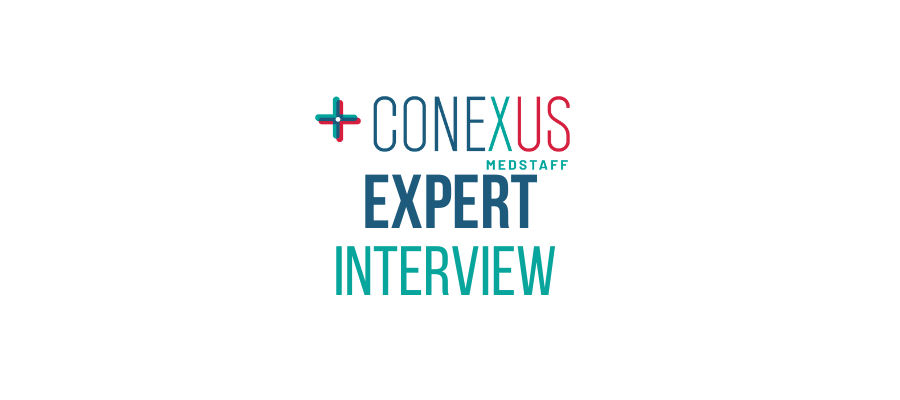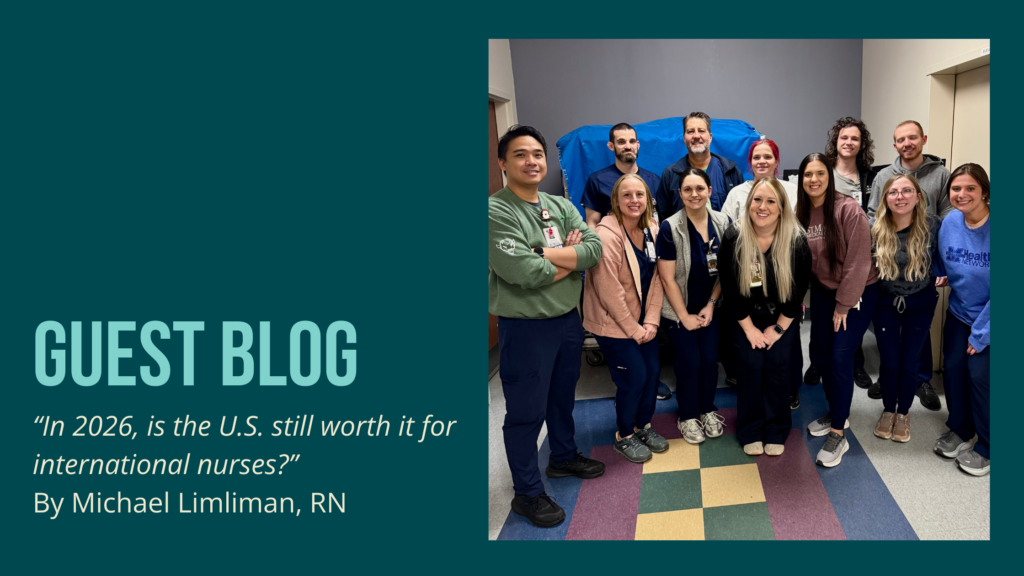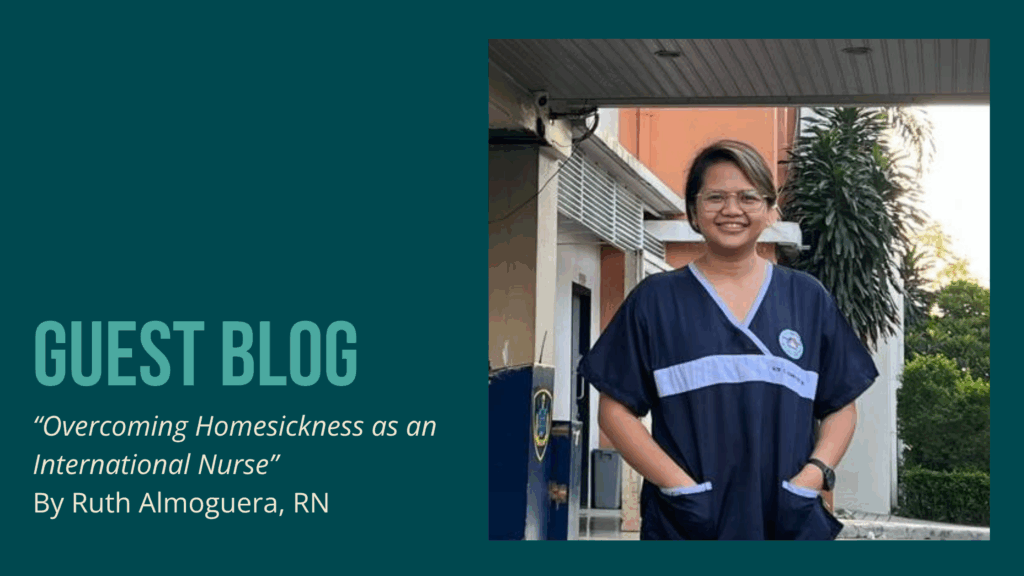Build your English language confidence with Conexus MedStaff
By Conexus MedStaff - Posted Mar 22, 2024

English Fluency: A Vital Requirement for EB-3 Visa Approval
Proven English fluency is an essential component of obtaining a U.S. visa as an international registered nurse or medical technologist. As a leading employer of international healthcare professionals in the United States, Conexus MedStaff has developed a language program to help nurses and medical technologists develop their linguistic skills, enabling them to pass their English proficiency exam and feel prepared to speak fluently when they arrive in the U.S. In this article, Bryony Humphries, English Language Programs Manager at Conexus, discusses how we help our registered nurses and medical technologists to communicate confidently in English.
The Importance of English Proficiency for Healthcare Professionals
Non-native English speakers typically need to demonstrate English proficiency to obtain U.S. EB-3 or H-1B visas. There may be exceptions based on personal circumstances, but generally speaking healthcare professionals from non-English-speaking countries or countries where English is not widely spoken will likely need to demonstrate their proficiency through tests such as the IELTS (International English Language Testing System) or PTE (Pearson Test of English).
Conexus MedStaff’s Comprehensive English Proficiency Program
“The Conexus English proficiency program is designed to help our healthcare professionals who are currently in the visa application process to develop their English skill and ability,” explained Bryony. “This will enable them to be confident when they take tests such as the IELTS or PTE and will allow them to successfully apply for their U.S. Visa Screen. It will also ensure that, as time goes by and the healthcare professional moves closer to deploying to the United States, they are able to speak English confidently and are comfortable living in a foreign language.”
Bryony Humphries: A Personal Perspective on Learning a Foreign Language
Bryony herself is no stranger to living in a foreign language. While she now lives in Wales in the UK, she can speak Japanese and spent time in Japan teaching English.
She says that the Conexus English program goes beyond prepping someone to pass a test. “We’ve designed the program to cover grammar, listening and reading comprehension, speaking and writing, so that our nurses and medical technologists are able to fully utilize all aspects of the English language when they transition to the U.S.”
The approach is personalized though, as many aspects of the Conexus process are. “If someone is already a fluent English speaker, but they are still required to demonstrate proficiency for their U.S. visa, we can push them through faster. They don’t need to spend time in extra lessons or workshops. We’ll just authorize them to take whichever test is best for the state they’ll move to in the U.S.”
Choosing the Right English Exam: IELTS vs. PTE
One of the more widely recognized English exams in the U.S. is the IELTS, but some states accept the PTE. According to Bryony, the PTE is often a good route for medical technologists, while for nurses the preferred route is IELTs. Overall though, she recommends all healthcare professionals aim to pass their IELTs, as that is the more widely accepted option. “It’s not a matter of one test being easier or more difficult than the other,” she explained. “They are just tailored differently so that they tend to catch the language requirements that somebody might need to use. If you’re a nurse, for example, you’re going to be a very social person in a hospital because you’re talking to people daily, therefore you would need a higher level of proficiency. A medical technologist will spend most of their time in the laboratory and won’t need to be as publicly interactive.”
With that said though, the Conexus English proficiency program does help people to prepare for life outside of work in the U.S. “If our nurses or medical technologists need it, we can offer training in colloquial English closer to their deployment date. We can focus on what we call ‘living English’ classes, where they learn to socialize and use English in a social manner with new words and phrases that they might not have come across before.”
Confidence is Key: Why It’s Not Just About Passing the Test
While English tests prove you can speak the language in that moment, they don’t necessarily give you the confidence to continue speaking when you’re immersed in an English-speaking society. “The biggest part of learning and trying to speak any language is confidence,” said Bryony. “It’s all very well learning how to pass a test, but the reality is that our nurses and medical technologists are going to be living in this language. We want to make sure they are absolutely prepared for that. I think that’s very important.”
The Mantra of Mastery: Practice, Practice, Practice
Bryony’s mantra for building confidence is ‘practice, practice, practice’. “It can be a long journey to becoming fluent, but it’s a very satisfying journey and very much worthwhile. Using a language is what you make of it. If you’re eager to move to the United States and become part of the U.S. community, the best thing you can do is practice and try to live and breathe the language.”
Top Tips for Practicing English Outside of Classes
- Watch movies and TV. “Watching movies and TV shows is a great way to learn a language. When you’re more proficient, try turning off the subtitles and see if you can understand and follow along with what the characters are saying.”
- Sing. “Learn the lyrics to songs you like and try to understand what they mean. When you sing your accent neutralizes – think of Lewis Capaldi. You wouldn’t know he’s got a very strong Scottish speaking accent when you hear him sing! It’s much easier to understand when he sings because his accent is neutralized.”
- Read aloud. “Opening a book and reading is a great way of building your language skills. Read out loud, and if you come across a word you don’t know, you can probably sound it out by breaking it down into parts you do know. Have a look online for a video of someone saying that word and practice it by repeating their pronunciation.”
- Make mistakes. “Don’t be afraid to make mistakes! Even if you’re going to get it wrong, just try. Be confident enough to make mistakes. The best way you can learn a language is to become confident using it.”
Ready to Start Your U.S. Healthcare Career?
Learn more about the English Language Proficiency Exams.
Are you an international registered nurse or medical technologist looking to start a new career in the U.S.? Apply now to find out how we can help.



